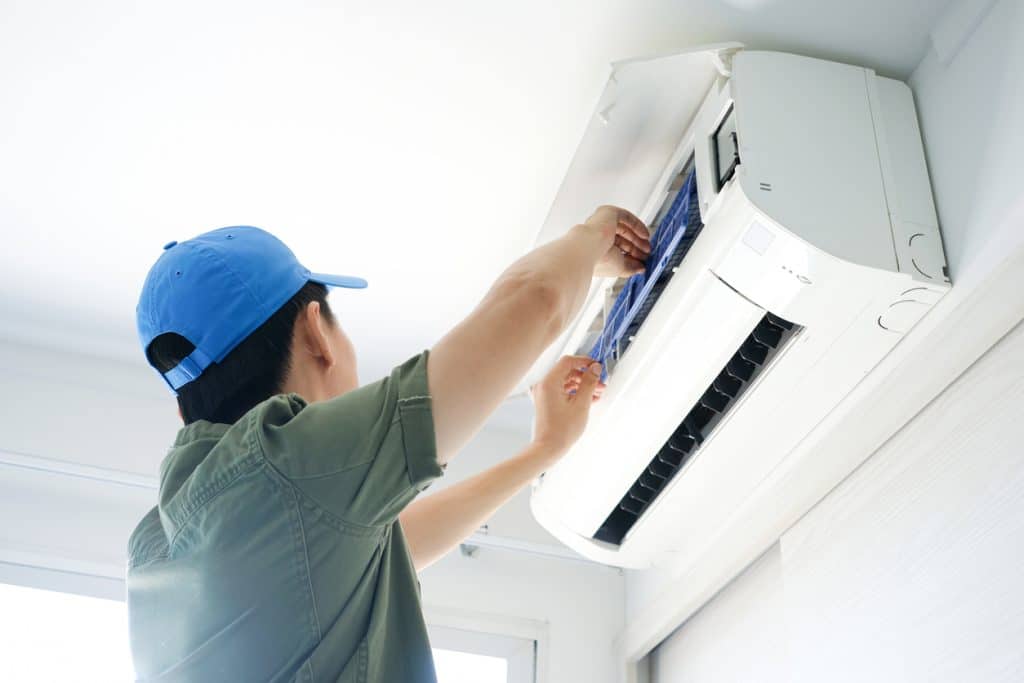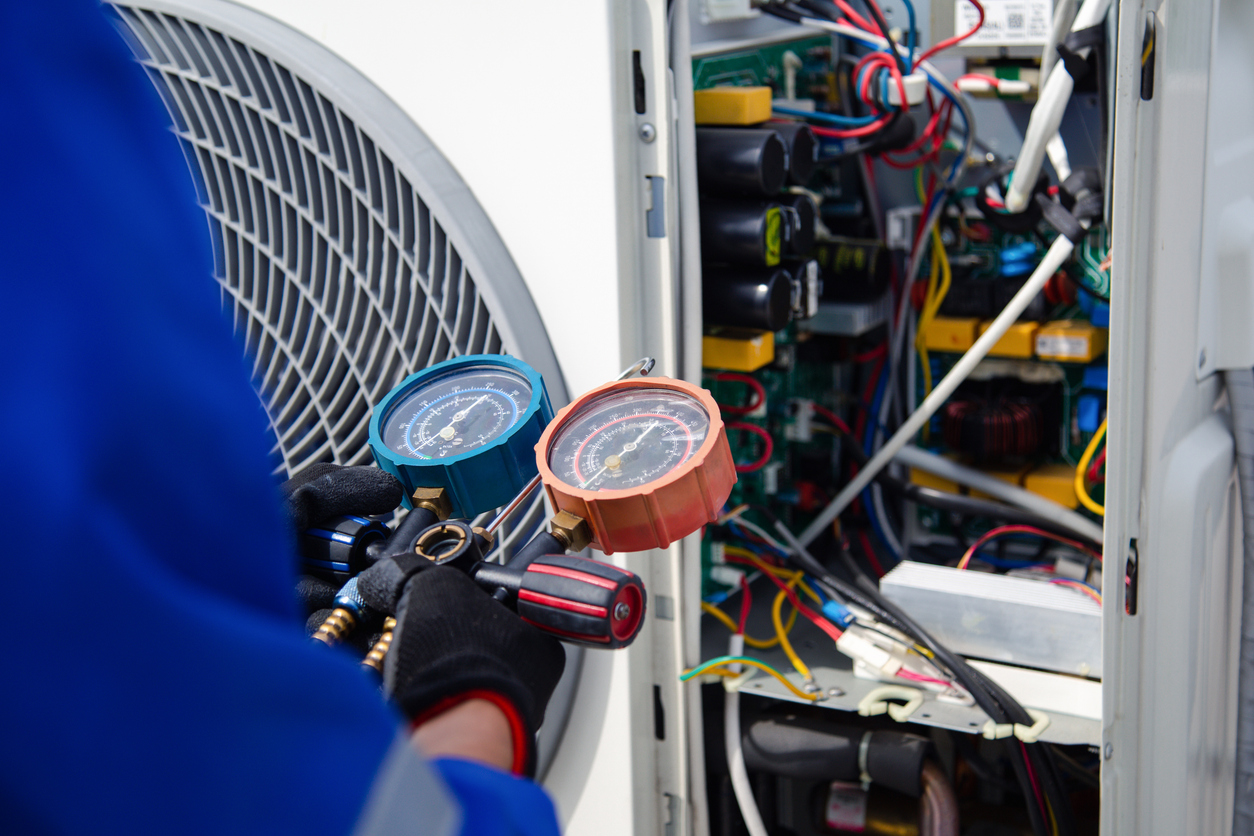The expert resource to Fix broken Air conditioner problems
Wiki Article
The Importance of Cooling And Heating Expertise: Uncovering Reasons of AC Issues for Homeowners
House owners usually ignore the importance of comprehending their HVAC systems. Acknowledging typical indicators of a/c troubles can bring about prompt interventions. Issues like inadequate cooling or uncommon sounds are not just aggravations; they can indicate much deeper worries. By discovering the origin causes of these issues, house owners can boost system effectiveness and expand its life expectancy. What are one of the most widespread concerns that can emerge, and exactly how can they be effectively resolved?Usual Indicators of Air Conditioning Troubles
How can homeowners recognize concerns with their a/c systems before they escalate? Recognizing usual indicators of a/c issues is essential for timely upkeep. One prevalent indicator wants air conditioning; if the cooling device stops working to decrease the indoor temperature level, it may signal underlying concerns. Unusual sounds, such as grinding or hissing, can additionally show mechanical failings or loosened components - HVAC contractor. Furthermore, house owners must be cautious of weird smells rising from the system, which could suggest mold development or electrical troubles. Frequent cycling on and off, recognized as short cycling, can show thermostat issues or cooling agent leaks. Moreover, a boost in energy expenses without a matching rise in use may point to ineffectiveness. By remaining alert to these warning indications, home owners can prevent much more considerable problems and expensive repair services, ensuring their air conditioning systems operate effectively throughout the warmer months
Comprehending Cooling Agent Issues
Refrigerant problems can considerably influence the effectiveness of a heating and cooling system. Home owners must recognize the indicators of low cooling agent levels and the relevance of finding cooling agent leaks. Resolving these problems promptly can prevent additional damages to the system and guarantee height cooling efficiency.Low Refrigerant Levels
An usual issue that house owners may encounter with their HVAC systems is reduced cooling agent levels, which can substantially influence the system's effectiveness and efficiency. Refrigerant is essential for the cooling procedure, soaking up warm from interior air and launching it outside. When degrees go down, the air conditioning system battles to cool the area effectively, causing enhanced energy intake and prospective system stress. Signs and symptoms of reduced refrigerant consist of inadequate air conditioning, longer run times, and ice development on the evaporator coils. Homeowners might also observe unusual sounds as the compressor works harder to compensate for the deficiency. It is very important for property owners to comprehend the importance of preserving appropriate cooling agent levels to guarantee peak heating and cooling performance and durability.Refrigerant Leaks Detection
Where might a property owner start when encountered with the possibility of refrigerant leakages in their cooling and heating system? The primary step involves monitoring the system's efficiency. Indications such as decreased cooling efficiency, ice development on coils, or hissing audios might suggest a cooling agent leakage. Home owners must likewise look for noticeable indications of oil deposit, usually a warning indication of a leak. Making use of a cooling agent leakage detector can supply more exact identification. If suspicions persist, speaking with a certified heating and cooling professional is crucial, as they have the proficiency and devices to find leaks effectively. Motivate discovery and fixing of cooling agent leaks not only enhance system effectiveness yet also stop possible ecological injury, making it a necessary facet of HVAC upkeep.Electric Failures and Their Influence
Electric failures can substantially influence heating and cooling systems, specifically via concerns like breaker breakdowns and malfunctioning circuitry. These issues not only disrupt the system's performance but can additionally bring about pricey repair work and safety and security risks. Understanding the ramifications of such failures is crucial for property owners to preserve an efficient and risk-free cooling and heating environment.Breaker Issues
Just how can circuit breaker problems affect the performance of a HVAC system? Circuit breakers offer as important security devices that take care of electric flow to a/c systems. If a circuit breaker trips often, it interrupts power supply, bring about irregular home heating or air conditioning. This can create substantial pressure on the system, causing inefficient operation and prospective damage to components. House owners might see enhanced power costs as a result of the HVAC system's struggle to maintain desired temperature levels. Additionally, repeated disturbances from stumbled breakers can shorten the life expectancy of the a/c system, requiring expensive repair services or substitutes. Normal upkeep of circuit breakers is important, as it ensures a steady power supply, ultimately boosting the general effectiveness of the HVAC system.Faulty Circuitry Effects
Often neglected, defective electrical wiring can have alarming consequences for a/c systems. Circuitry issues may bring about short circuits, causing frequent break downs and raised repair costs. On top of that, improper electrical wiring can create ineffective energy use, causing higher utility bills and pressure on the system. In serious cases, damaged wiring can activate electrical fires, posturing a considerable safety risk to property owners. Furthermore, these electric failures can harm heating and cooling parts, leading to expensive substitutes or extensive repair work. Property owners should prioritize normal inspections by qualified specialists to determine and correct electrical wiring issues prior to they rise. Understanding the ramifications of damaged wiring can assist assure the longevity and security of heating and cooling systems, eventually protecting both the home and its occupants.Clogged Filters and Their Consequences
While several house owners may overlook the importance of routine filter upkeep, clogged up filters can cause considerable effects for heating and cooling systems. When filters end up being blocked with dirt, dust, and particles, air movement is restricted. This decrease in airflow forces the system to function harder, bring about enhanced power usage and potentially greater energy costs. Gradually, this strain can trigger deterioration on elements, causing early system failing.Additionally, stopped up filters can compromise indoor air quality. Pollutants and irritants might distribute throughout the home, worsening breathing concerns and allergies for residents. Poor air flow can create the evaporator coil to ice up, leading to costly repair work and inefficient cooling performance. On a regular basis changing or cleaning filters is a simple yet crucial upkeep task that can aid ensure the longevity and efficiency of HVAC systems, ultimately profiting both the property owner's comfort and their financial resources.

Thermostat Malfunctions Explained
What takes place when a thermostat breakdowns can substantially influence both convenience and power performance in a home (air conditioner repair). A faulty thermostat may stop working to properly check out the temperature level, leading to overcooling or inadequate cooling. This inconsistency can create discomfort for residents and result in higher power bills, as the heating and cooling system works harder than neededUsual issues consist of dead batteries, which can make electronic thermostats inoperative, and loose electrical wiring that interrupts interaction between the thermostat and the HVAC unit. Additionally, out-of-date or inadequately adjusted thermostats might not respond properly to temperature level adjustments, additionally aggravating energy inadequacy.
House owners ought to be attentive for indications of malfunction, such as inconsistent temperatures or unexpected power expenses. Regular checks and understanding of the thermostat's performance can help recognize issues early, guaranteeing peak performance of the cooling and heating system. Attending to thermostat problems promptly is essential for maintaining a comfy living setting and managing energy intake successfully.
The Role of Normal Maintenance
Normal upkeep plays an important role in making certain the longevity and performance of HVAC systems. House owners that prioritize routine checks can stop small issues from intensifying right into costly fixings. Regular maintenance generally includes jobs such as cleaning filters, checking ductwork, and checking refrigerant degrees. These activities aid keep suitable air flow and system performance, reducing power usage.A properly maintained Cooling and heating system runs a lot more effectively, giving consistent comfort throughout the home. Normal tune-ups can likewise expand the life expectancy of the device, bring about significant savings with time. House owners are motivated to arrange expert evaluations at least annually to recognize possible troubles early.
In enhancement, several suppliers call for normal maintenance to maintain service warranties, making this technique not just beneficial but frequently required. Overall, comprehending the significance of regular maintenance empowers house owners to secure their a/c systems against unanticipated failures and enhance their investment in home convenience.
Frequently Asked Inquiries
How Can I Boost My A/c's Energy Efficiency?
Improving an AC's power efficiency involves normal maintenance, cleaning or changing filters, securing ductwork, guaranteeing correct insulation, utilizing programmable thermostats, and organizing professional examinations to identify and correct potential concerns affecting performance.
What Is the Life expectancy of a Normal Air Conditioning System?
A typical air conditioning unit has a lifespan of 15 to two decades, relying on upkeep, use, and ecological variables. Normal maintenance can significantly expand its operational life and improve general effectiveness.
When Should I Change My Air Conditioning System?
An a/c system must commonly be changed every 10 to 15 years. Signs for replacement consist of constant fixings, climbing power expenses, and insufficient air conditioning, suggesting that an upgrade might be more cost-efficient and effective.Can I Repair Air Conditioner Troubles Myself?
Yes, people can fix AC troubles themselves by inspecting filters, guaranteeing power supply, and inspecting for noticeable problems (ac fix). Nonetheless, intricate issues usually call for specialist aid for accurate medical HVAC company diagnosis and risk-free repair work, making sure suitable system efficiency
Exactly how Do I Choose a Trusted Cooling And Heating Professional?

To choose a reputable cooling and heating technician, one must seek referrals, examine online evaluations, confirm licenses and insurance policy, analyze experience, and request in-depth estimates to ensure top quality service and reasonable rates before choosing.
Final thought
To summarize, a strong understanding of heating and cooling systems allows homeowners to efficiently detect and deal with usual air conditioning problems. Acknowledging indicators such as inadequate cooling or increasing energy prices enables for prompt interventions, which can substantially boost system performance and longevity. By staying notified concerning potential troubles like refrigerant leaks, electric failings, and clogged filters, home owners can take proactive actions to maintain their systems, ultimately guaranteeing convenience and advertising a much healthier living environment. Routine maintenance remains essential to this venture.Report this wiki page